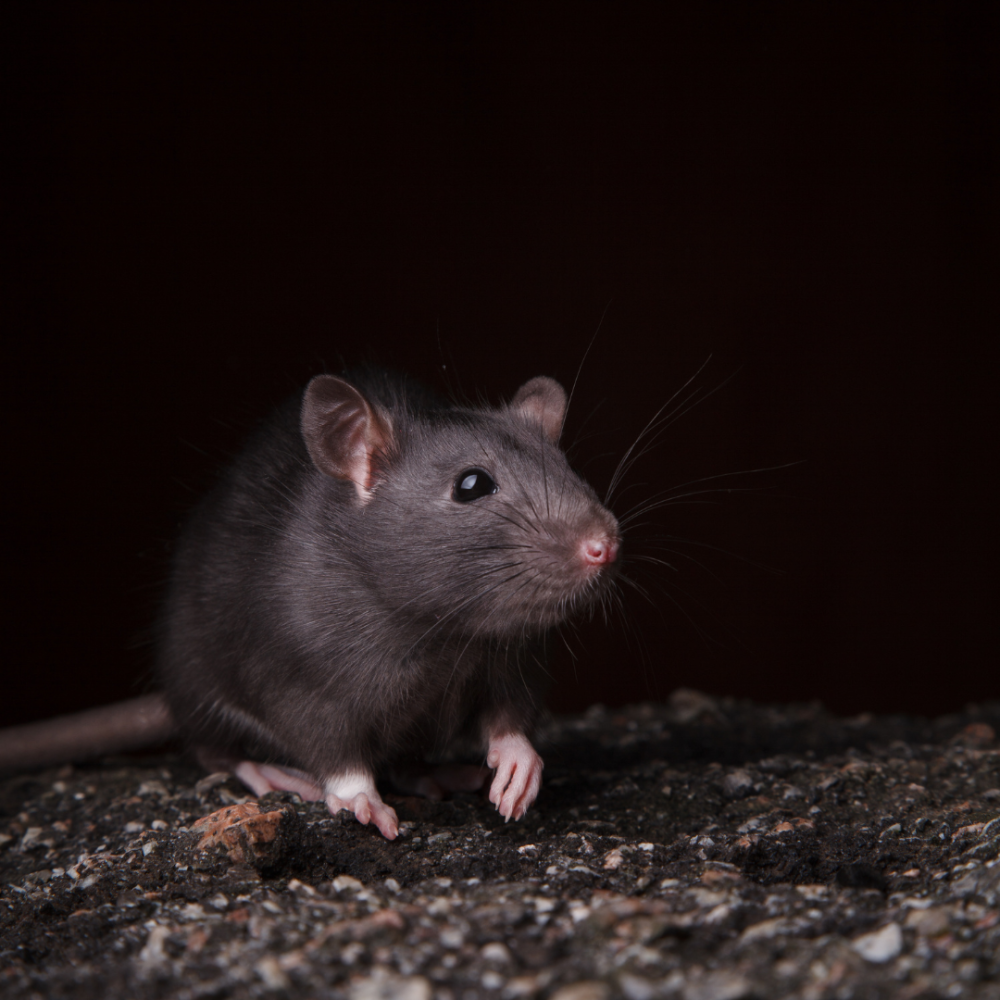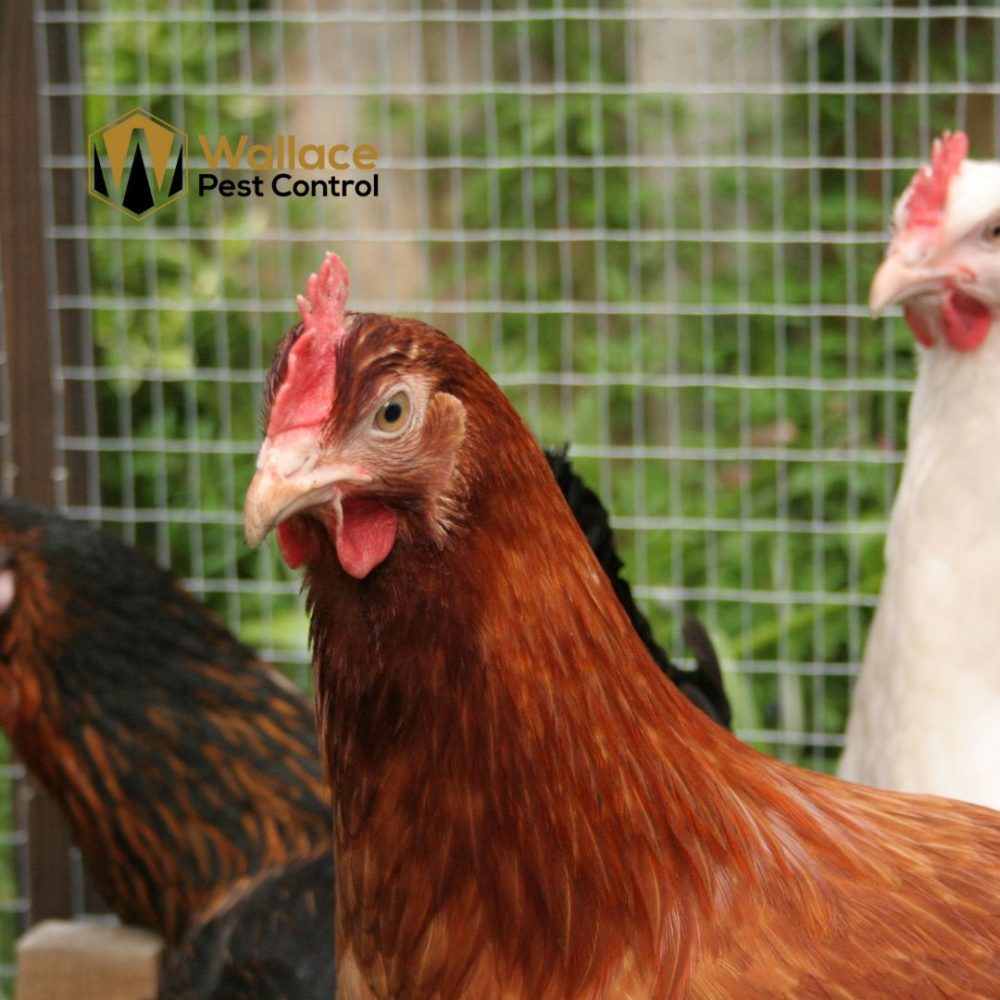Rat Removal Lancashire
Rat Control Service: Comprehensive and Effective Solutions for Your Home
Rats are a common nuisance in many UK homes, and you may be dealing with Rattus rattus (black or roof rat) or Rattus norvegicus (brown or Norway rat). While black rats are rare in Lancashire, they do occasionally make an appearance. It’s also worth noting that young brown rats are sometimes misidentified due to their similar appearance to black rats.
If you're seeing rat droppings, noticing gnaw marks, or hearing scratching noises, it's time to take action. Our rat control service is designed to eliminate rats quickly and efficiently, using a combination of baiting, tracking dust, and proofing. We’ll visit your property three times, providing you with the peace of mind that comes from knowing the job is done right.
Don't let rats take over your home, get in touch today to make sure your property stays safe and rat-free.

Contact Wallace Pest Control
Wallace Pest Control is the leading supplier of fast and effective rat control. Our prices are tailored to your specific requirements. Please get in touch with us for a quote as the cost depends on several factors, including:
- Level of infestation
- Access issues
We aim to be with you within 48 hours when you accept our quote. So call us now if you think you have a rat problem on 07496 680879 or message us on the contact form below.
Rat Control Service: Treatment Process and Price
Price: £240 (includes 3 visits)
Our Rat Control Service is designed to quickly eliminate rats from your home or property.
The service is priced at £240, which covers three visits. During these visits, we will use a combination of baiting, trapping, monitoring, and proofing based on the findings from our expert technicians.
If additional visits are required to fully resolve the issue, these will be charged at £60 per visit.
Visit 1: Initial Inspection and Setup
- Inspection: The technician will inspect your property for signs of rat activity, such as droppings, gnaw marks, and grease trails. The technician will also identify potential entry points, like gaps around utility pipes, air bricks, and vents.
- Baiting or Trapping: Based on the technician’s findings, we will either set bait stations, traps, or a combination of both. This strategy is tailored specifically to your property to maximize effectiveness.
- Tracking Dust: In areas with suspected activity, we’ll apply tracking dust to locate entry points and monitor the rats' movements.
- Resident Communication: We’ll provide clear instructions to ensure pets and children stay clear of bait stations and areas where tracking dust has been applied.


Visit 2: Monitoring and Adjustment
- Inspection and Monitoring: During the second visit, we’ll check the bait stations or traps for rat activity. If bait consumption or trapping success is insufficient, we may adjust the placement of stations or add more traps.
- Bait Replacement: If the rats are feeding on the bait, we’ll reevaluate the situation to ensure that sufficient control measures are in place. Our goal is to ensure effective rat elimination, and we’ll adjust the strategy as needed to prevent any further rat activity in the home.
- Tracking Dust: The technician will also reassess the tracking dust application to ensure the treatment is working as expected and locate any new or missed entry points.
Visit 3: Final Monitoring and Basic Proofing
- Final Inspection: We’ll inspect the property and ensure that the infestation has been fully addressed.
- Basic Rodent Proofing: Once the rat activity has been controlled, we’ll provide basic proofing to seal small entry points (around the size of three tennis balls). This helps prevent further infestations.
- Proofing Survey: If larger-scale proofing is needed (e.g., sealing larger gaps, installing heavy-duty barriers), a proofing survey will be conducted, and we will provide a quote for the additional work required.
Follow-Up Visits
In rare cases, additional visits may be required if the rat activity persists. We charge £60 per visit for additional visits, ensuring that we can thoroughly address any remaining issues and maintain a rat-free environment.


Pre-Treatment Advice: Ensuring Success in Rat Control
Before we arrive for your rat control service, there are a few essential steps you can take to ensure we can begin treatment promptly and effectively. Proper preparation helps us target the issue efficiently and ensure long-term success.
Secure All Food Sources
Rats are opportunistic feeders, and ensuring food is sealed away is crucial. Store all food in sealed containers and ensure no food is left out, even in cupboards or pantry areas. Discard any food that may have come into contact with rats, as it could be contaminated and unsafe.
Clean All Surfaces
We strongly recommend wiping down all surfaces, especially in the kitchen and dining areas. Rats can spread bacteria and disease, so thoroughly clean and disinfect surfaces to reduce the risks of contamination. This is especially important before we begin treatment, as it creates a safer environment for everyone in the household.
Leave Entry Points Open for Inspection
While it’s tempting to block up any gaps you may think rats are using to enter your property, we strongly advise against sealing entry points before we arrive.
Doing so may trap rats inside, making our treatment less effective. Let us handle the inspection and entry point identification.
Manage Your Waste Properly
Rats are naturally drawn to waste, so it's crucial that bins are sealed tightly and not overflowing. Ensure all your indoor and outdoor bins are closed securely, and clean up any waste or debris around the bins regularly to avoid attracting rodents to your property.
Remove Bird Feeders and Pet Food
Bird feeders can act as a beacon for rats, and we recommend removing them temporarily during treatment. If you have pets, ensure that pet food is not left out overnight and that any spilled food is cleaned up. Store pet food in airtight, rodent-proof containers to reduce any risk of attracting rats.
Clear Clutter for Better Access
We often need access to areas such as lofts, basements, and behind large furniture to treat rodent infestations effectively. Please clear any clutter around these spaces to allow us to do a thorough job. If there are any areas in your home that are particularly difficult to access or obstructed, please let us know ahead of time so we can plan accordingly. Limited access to key areas may limit what we are able to do.
Rodent Activity
Make a note of the location and time of any rodent activity heard, seen, or any signs of activity. This will help the technician with the treatment process.
Keep Pets and Children Away
For safety reasons, we ask that pets and children stay away from areas being treated during our visit. We’ll provide clear guidance on which areas to keep clear and will let you know when it’s safe to return.
By following these pre-treatment steps, you’ll help ensure that we can get started right away and provide the most effective solution for your rat control needs. If you have any questions or need further clarification, feel free to reach out before our visit.
During the Treatment Process: What You Need to Know
Even after we begin the treatment, it’s important to keep following the pre-treatment advice. The work doesn't stop once the technician arrives, and continuing these practices will help us ensure the treatment is effective and successful.
Here’s how to make sure we stay on track:
Maintain Cleanliness
Continue to store all food securely, clean up any crumbs, and keep kitchen areas free of food scraps. Rats are constantly searching for food, so ensuring there are no new food sources during the treatment period will make the baiting and trapping efforts more effective.

Keep Areas Clean and Disinfected
As we apply treatments and monitor progress, keep surfaces clean and disinfected. If you need to clean any areas, do so with a gentle cleaner that won't interfere with the treatments we've applied. We recommend avoiding any harsh chemicals or cleaning agents, especially around bait stations, to prevent accidental removal or disruption of the treatment.
Be Mindful of Bait and Trap Areas
Do not interfere with or move the bait and traps. We understand the urge to check, but it's important to leave them in place for optimal effectiveness. Pet owners should ensure their pets are kept away from bait stations at all times.
Post-Treatment Guidance: Ensuring Long-Term Success
Once your rat infestation has been dealt with, it's essential to follow through with the recommendations provided during the pest-proofing survey.
While the problem may have been eradicated for now, taking steps to prevent future infestations will save you time, money, and hassle in the long run. Here’s what you need to do:
For all rat pest-related enquiries, please get in touch with our friendly, discreet team on 07496 680879, or send us a direct message through our contact form.

FAQs: Rat Removal
Rat Removal Lancashire
If you have a rat infestation and need professional help, don't hesitate to contact our friendly, experienced team for advice and an effective solution.




